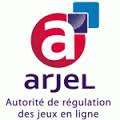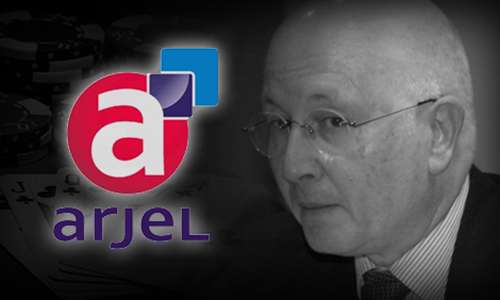ARJEL Annual Report: Online-Poker Liquidity Sharing Deal Coming Soon
France’s regulatory agency governing online gambling matters, ARJEL (L’Autorité de regulation des jeux en ligne) has published its annual report of results for the 2016 calendar year and its forecasts and regulations for 2017 and beyond. Among the revelations: France is nearing a liquidity-sharing deal for online poker with three of its western European neighbors — Spain, Portugal and Italy.
 These four western European countries have each tried to go the single-nation route when it comes to regulating online poker, and each has discovered, just as predicted by numerous industry experts, the online poker would wither on the vine due to a lack of liquidity: The populations of each of these nations are just too small, individually, for the peer-to-peer game of online poker to grow. Instead, these counrties have seen shrinkage in their online-poker participation bases. That means less tax revenue, hence the need to adapt.
These four western European countries have each tried to go the single-nation route when it comes to regulating online poker, and each has discovered, just as predicted by numerous industry experts, the online poker would wither on the vine due to a lack of liquidity: The populations of each of these nations are just too small, individually, for the peer-to-peer game of online poker to grow. Instead, these counrties have seen shrinkage in their online-poker participation bases. That means less tax revenue, hence the need to adapt.
Rumors that France and at least some of the other three firewalled countries have been talking about a liquidity deal have circulated for some time. The news is that all four countries are involved, and that ARJEL has made these talks’ existence official.
In a section titled “Regulatory Actions,” the ARJEL report offers this synopsis. We’ve taken the time to translate it from French and polish it up a bit, paraphrasing here and there, for our English-language readers:
The European online poker tables: a much awaited measure
As early as 2012, and concerning the first discussions around review the [existing online gambling] law of May 12, 2010 – which was when they occurred – ARJEL has argued in the interest of this measure especially regarding the [liquidity sharing] with foreign operators, was initially allowed (or considered) for sports and horse racing.
On October 7, 2016, the Digital Republic Act introduced the framework under which European online poker [liquidity] sharing in licensed poker games could occur. Before it becomes law, conditions were laid down:
– Mutualisation (shared liquidity) is European. It is therefore authorized only with the Member States of the European Union, though it is enlarged to include the European Economic Area;
– It can only be set up with [EU member s]tates which have regulatory requirements equivalent to ours;
– Only “audited” players will be allowed to participate in the shared-liquidity tables (this refers to secure player-identification and -verification requirements);
– Finally, in order to be operational, the liquidity-sharing deal must have been the subject of an agreement with the regulators of the partner countries, within the framework of a cooperation agreement.The multilateral convention defining the modalities of implementation and control with all partners (Italy, Spain, Portugal) is currently under discussion. The agreement should be signed in June.
In September, [ARJEL] could therefore be in position, for operators who request it:
– To examine the material (bills, documentation, etc.) leading to the special authorization provided for in the approval measure;
– To process [operator] applications for the approval of game software.This much-anticipated measure should, thanks to a greater volume of liquidity, increase the attractiveness of the approved poker market while battling illegal sites. The President of ARJEL is aware of the importance and urgency of this opportunity for the approved deal, and shall make every effort to ensure that it takes effect as soon as possible.
No final date has been scheduled or even suggested for all four countries to reach agreement, sign the trade pacts, and approve one or more operators for the combined market. It’s unlikely that such liquidity-sharing could arrive before 2018, and even 2019 is a possibility. Nonetheless, it’s great to see that that the four firewalled western European nations have recognized that online-poker needs a thriving player base to survive and thrive, and that their single-nation approach just isn’t getting it done.
The ARJEL report also contains interesting information regarding the state of the current French online-gambling market. We’ll return with a feature on that at a later date.




















COMMENTS